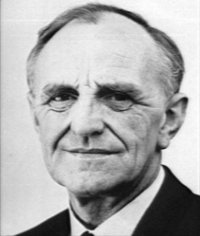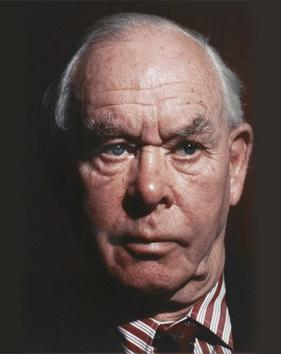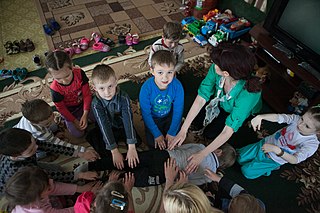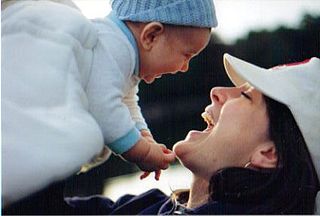Related Research Articles

Kindness is a type of behavior marked by acts of generosity, consideration, rendering assistance, or concern for others, without expecting praise or reward in return. It is a subject of interest in philosophy, religion, and psychology.

Donald Woods Winnicott was an English paediatrician and psychoanalyst who was especially influential in the field of object relations theory and developmental psychology. He was a leading member of the British Independent Group of the British Psychoanalytical Society, President of the British Psychoanalytical Society twice, and a close associate of British writer and psychoanalyst Marion Milner.
Object relations theory is a school of thought in psychoanalytic theory and psychoanalysis centered around theories of stages of ego development. Its concerns include the relation of the psyche to others in childhood and the exploration of relationships between external people, as well as internal images and the relations found in them. Adherents to this school of thought maintain that the infant's relationship with the mother primarily determines the formation of their personality in adult life. Attachment is the bedrock of the development of the self, i.e. the psychic organization that creates one's sense of identity.

Edward John Mostyn Bowlby, CBE, FBA, FRCP, FRCPsych was a British psychiatrist, and psychoanalyst, notable for his interest in child development and for his pioneering work in attachment theory. A Review of General Psychology survey, published in 2002, ranked Bowlby as the 49th most cited psychologist of the 20th century.
A comfort object, more formally a transitional object or attachment object, is an item used to provide psychological comfort, especially in unusual or unique situations, or at bedtime for children. Among toddlers, a comfort object often takes the form of a blanket or a stuffed animal, doll or other toy, and may be referred to by a nickname such as blankie.

Pauline Robinson Bush, commonly known as Robin Bush, was the second child and first daughter of the 41st president of the United States, George H. W. Bush, and his wife, First Lady Barbara Bush. After she was born in California, her family soon relocated to Texas, where Robin lived most of her life.

Adam Phillips is a British psychoanalytic psychotherapist and essayist.

Play therapy refers to a range of methods of capitalising on children's natural urge to explore and harnessing it to meet and respond to the developmental and later also their mental health needs. It is also used for forensic or psychological assessment purposes where the individual is too young or too traumatised to give a verbal account of adverse, abusive or potentially criminal circumstances in their life.
Self psychology, a modern psychoanalytic theory and its clinical applications, was conceived by Heinz Kohut in Chicago in the 1960s, 70s, and 80s, and is still developing as a contemporary form of psychoanalytic treatment. In self psychology, the effort is made to understand individuals from within their subjective experience via vicarious introspection, basing interpretations on the understanding of the self as the central agency of the human psyche. Essential to understanding self psychology are the concepts of empathy, selfobject, mirroring, idealising, alter ego/twinship and the tripolar self. Though self psychology also recognizes certain drives, conflicts, and complexes present in Freudian psychodynamic theory, these are understood within a different framework. Self psychology was seen as a major break from traditional psychoanalysis and is considered the beginnings of the relational approach to psychoanalysis.

A father figure is usually an older man, normally one with power, authority, or strength, with whom one can identify on a deeply psychological level and who generates emotions generally felt towards one's father. Despite the literal term "father figure", the role of a father figure is not limited to the biological parent of a person, but may be played by uncles, grandfathers, elder brothers, family friends, or others. The similar term mother figure refers to an older woman.
Emotional conflict is the presence of different and opposing emotions relating to a situation that has recently taken place or is in the process of being unfolded. They may be accompanied at times by a physical discomfort, especially when a functional disturbance has become associated with an emotional conflict in childhood, and in particular by tension headaches "expressing a state of inner tension...[or] caused by an unconscious conflict".
Love and hate as co-existing forces have been thoroughly explored within the literature of psychoanalysis, building on awareness of their co-existence in Western culture reaching back to the “odi et amo” of Catullus, and Plato's Symposium.

Maternal deprivation is a scientific term summarising the early work of psychiatrist and psychoanalyst John Bowlby on the effects of separating infants and young children from their mother. Although the effect of loss of the mother on the developing child had been considered earlier by Freud and other theorists, Bowlby's work on delinquent and affectionless children and the effects of hospital and institutional care led to his being commissioned to write the World Health Organization's report on the mental health of homeless children in post-war Europe whilst he was head of the Department for Children and Parents at the Tavistock Clinic in London after World War II. The result was the monograph Maternal Care and Mental Health published in 1951, which sets out the maternal deprivation hypothesis.

Hatred or hate is an intense negative emotional response towards certain people, things or ideas, usually related to opposition or revulsion toward something. Hatred is often associated with intense feelings of anger, contempt, and disgust. Hatred is sometimes seen as the opposite of love.
The Independent or Middle Group of British analysts represents one of the three distinct sub-schools of the British Psychoanalytical Society, and 'developed what is known as the British independent perspective, which argued that the primary motivation of the child is object-seeking rather than drive gratification'. The 'Independent group...is strongly associated with the concept of countertransference as well as with a seemingly pragmatic, anti-theoretical attitude to psychoanalysis'.
The term reparation was used by Melanie Klein (1921) to indicate a psychological process of making mental repairs to a damaged internal world. In object relations theory, it represents a key part of the movement from the paranoid-schizoid position to the depressive position — the pain of the latter helping to fuel the urge to reparation.
The true self and the false self are a psychological dualism conceptualized by English psychoanalyst Donald Winnicott. Winnicott used "true self" to denote a sense of self based on spontaneous authentic experience and a feeling of being alive, having a real self with little to no contradiction. "False self", by contrast, denotes a sense of self created as a defensive facade, which in extreme cases can leave an individual lacking spontaneity and feeling dead and empty behind an inconsistent and incompetent appearance of being real, such as in narcissism.
In psychology, narcissistic withdrawal is a stage in narcissism and a narcissistic defense characterized by "turning away from parental figures, and by the fantasy that essential needs can be satisfied by the individual alone". In adulthood, it is more likely to be an ego defense with repressed origins. Individuals feel obliged to withdraw from any relationship that threatens to be more than short-term, avoiding the risk of narcissistic injury, and will instead retreat into a comfort zone. The idea was first described by Melanie Klein in her psychoanalytic research on stages of narcissism in children.
Parentification or parent–child role reversal is the process of role reversal whereby a child or adolescent is obliged to support the family system in ways that are developmentally inappropriate and overly burdensome. For example, it is developmentally appropriate for even a very young child to help adults prepare a meal for the family to eat, but it is not developmentally appropriate for a young child to be required to provide and prepare food for the whole family alone. However, if the task is developmentally appropriate, such as a young child fetching an item for a parent or a teenager preparing a meal, then it is not a case of parentification, even if that task supports the family as a whole, relieves some of the burden on the parents, or is not the teenager's preferred activity.
Capacity to be alone is a developmentally acquired ability, considered by object relations theory to be a key to creative living.
References
- ↑ D. W. Winnicott, The Child, the Family, and the Outside World (Penguin 1973) p. 173
- ↑ D. W. Winnicott, The Child, the Family, and the Outside World (Penguin 1973) p. 10
- ↑ Mary Jacobus, The Poetics of Psychoanalysis (2005) p. 13
- ↑ Loraine Day, Writing Shame and Desire (2007) p. 252
- ↑ C. W. Bingham/A.M . Sidorkin, No Education Without Relation (2004) p. 114
- ↑ Adam Phillips/Barbara Taylor, On Kindness (2004) p. 93-4
- ↑ Quoted in Adam Phillips, On Flirtation (1994) p. 18
- ↑ Adam Phillips/Barbara Taylor, On Kindness (2004) p. 94
- ↑ C. W. Bingham/A.M . Sidorkin, No Education Without Relation (2004) p. 114